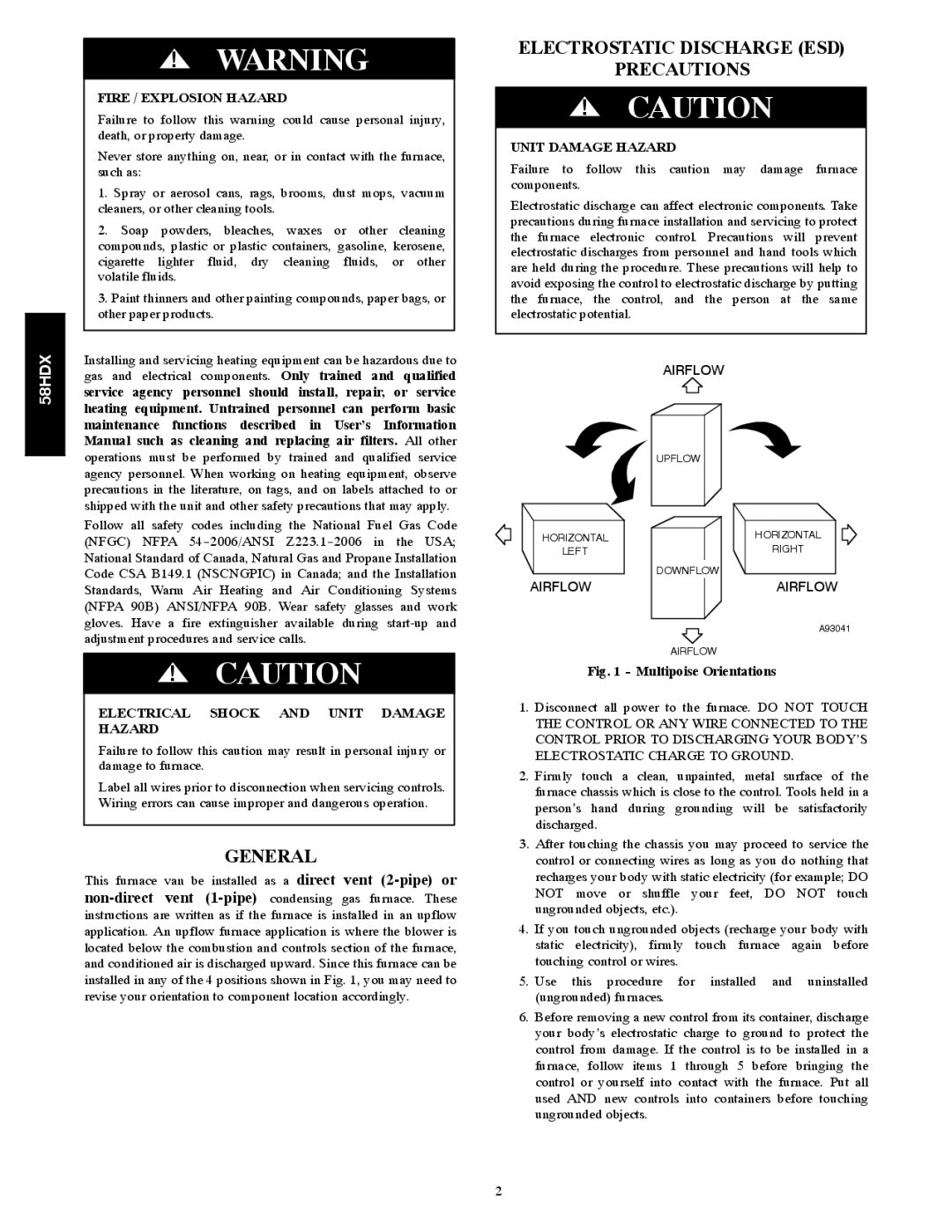58HDX specifications
The Carrier 58HDX is a high-efficiency gas furnace that embodies advanced technology and reliable performance aimed at providing superior home comfort. As part of Carrier’s Infinity series, the 58HDX is engineered for exceptional energy efficiency, convincing homeowners that they are making a sound investment in their heating solutions.One of the standout features of the Carrier 58HDX is its variable-speed blower motor. This technology allows the furnace to adjust its operation based on the heating needs of the home, providing steady, consistent heating while also optimizing energy use. This results in quieter operation and improved comfort levels since it reduces temperature swings commonly experienced with single-speed systems.
The 58HDX is designed with a two-stage heating system that enhances efficiency and comfort. It operates on a lower heat setting for most conditions, only ramping up to high heat during extremely cold weather to deliver consistent warmth without significant energy waste. This flexibility not only contributes to energy savings but also extends the lifespan of the unit.
Equipped with a highly efficient heat exchanger, the Carrier 58HDX boasts an impressive Annual Fuel Utilization Efficiency (AFUE) rating of up to 98%. This rating means that nearly all the fuel consumed is converted into heat for the home, making it one of the most efficient furnaces available on the market. This efficiency translates directly to lower utility bills and a reduced carbon footprint.
Furthermore, the 58HDX also includes advanced diagnostics and is compatible with Carrier’s Infinity® System Control. This integration allows users to monitor and control their home’s heating system remotely, ensuring comfort at their fingertips. With Wi-Fi enabled technology, homeowners can adjust settings, receive alerts for maintenance, and track energy usage.
The unit is also designed with increased reliability in mind. Features such as a durable cabinet, high-quality insulation, and a corrosion-resistant heat exchanger ensure long-lasting operation, while a quiet combustion process and integrated flame sensor improve safety and performance.
In summary, the Carrier 58HDX gas furnace brings together innovation, efficiency, and dependability. With its variable-speed blower, two-stage heating capability, high AFUE rating, and smart technology integration, it stands out as an ideal choice for homeowners looking to enhance comfort while managing energy costs.

